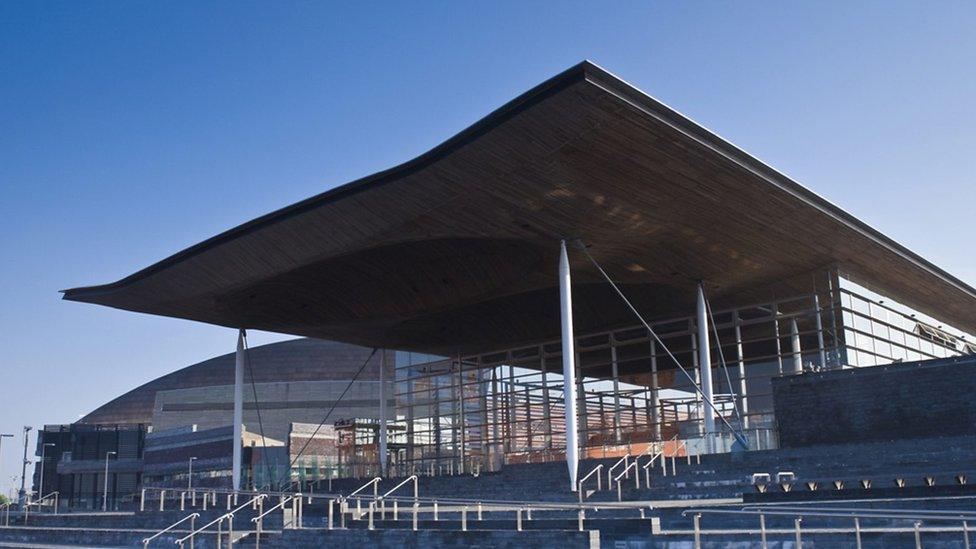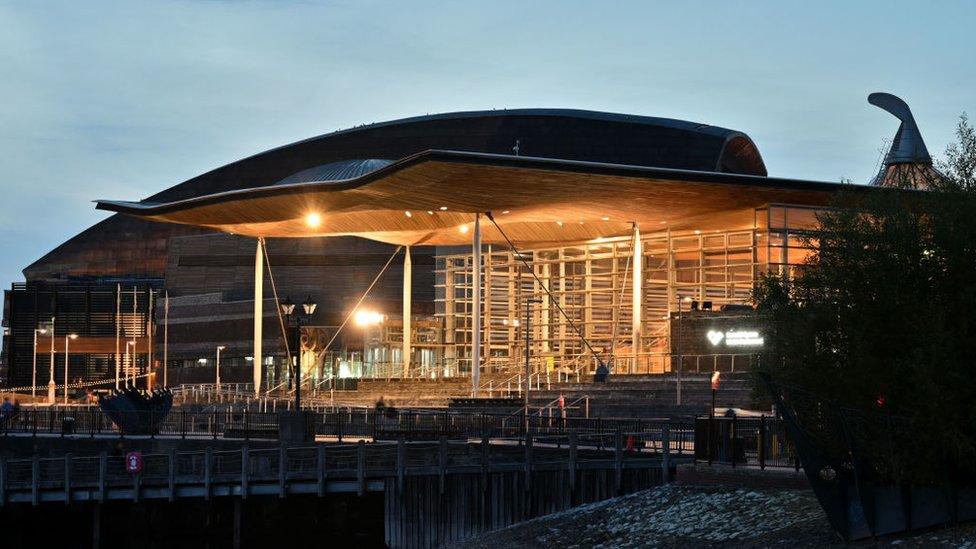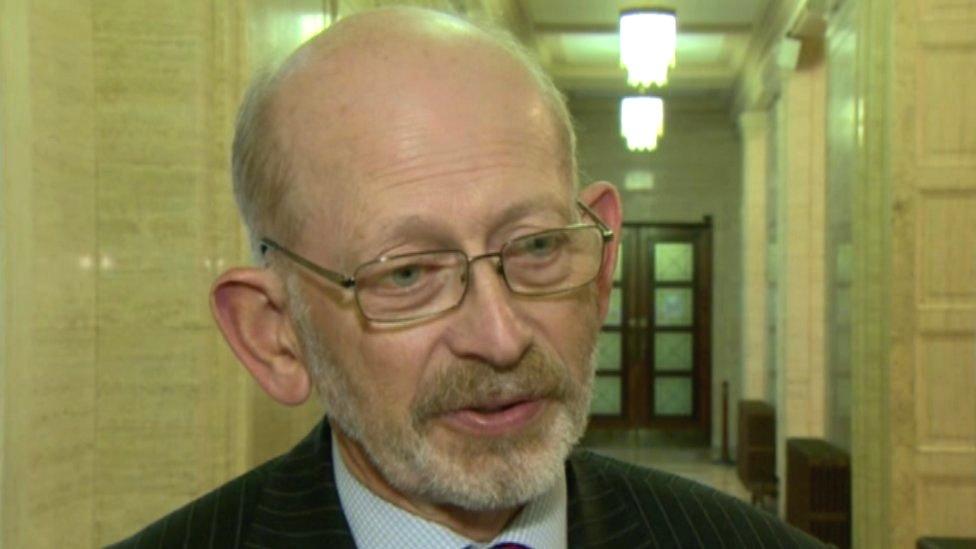New hurdles to form Senedd groups backed in vote
- Published

There have been two new groups formed during the recent Senedd term
New hurdles to forming a group in the Welsh Parliament have been approved by a majority of Senedd members.
Labour and Plaid Cymru wanted to change the rules after former members of UKIP formed two groups - the Brexit Party group and its successor - during the recent Senedd term.
A Conservative spokesman called the new rules "gerrymandering".
A Welsh Labour minister said they aim to uphold "the principles of democratic accountability and stability".
Party groups have access to more staff and greater status in proceedings.
As it stands, three members of the Senedd can form a political group if they notify the presiding officer that they wish to do so.
Under the new rules, they will need to be a members of a political party that won at least one seat at the previous Senedd election.
If that is not the case, the presiding officer would need to agree that "exceptional circumstances apply".
Most members are part of groups that follow party lines. One group - the Independent Alliance for Reform (IAR) - is made up of three independents.
They had been elected as UKIP members, and were part of the Brexit Party group. Its formation had also been criticised because the party had not been on the ballot paper at the 2016 election.
Members of the Senedd approved the new rules in a vote - 38 for, 17 against - on the last full day of proceedings before May's election.

Senedd members also approved new rules specifically banning politicians from abusing individuals
Welsh government minister Rebecca Evans had proposed a minimum of four members to a group, but that will remain at the current threshold of three.
Ms Evans, who is the Welsh government's business manager, told a Senedd debate the changes seek to uphold "the principles of democratic accountability and stability in our Senedd".
"The changes do not prevent new groups being formed, but they do offer a more robust system of checks and balances," she said.
'Anti-democratic'
Mark Isherwood, speaking for the Welsh Conservatives, said: "This is gerrymandering at its worst, where gerrymandering is designed to give political parties an unfair advantage."
Caroline Jones, leader of the IAR group, said the proposals were "anti-democratic".
Mark Reckless of the Abolish the Assembly Party suggested the changes might be read as if designed "ex post " - after the fact - "to prevent the formation of the Brexit Party group, of which I was part".
"The hurdle is already very high for independents to come in and, if three of them do, the idea that they shouldn't be allowed to form a group, but potentially could if they later won by-elections, makes absolutely no sense whatever."
But Plaid Cymru's Sian Gwnellian added: "The new standing orders will not prevent the formation of new groups. But what will be in place will be a far more robust system."
She said they would provide discretion to the presiding officer - known as the Llywydd - "to allow the formation of groups that don't have a clear mandate".
MSs also approved a new code of conduct for Cardiff Bay's politicians, prohibiting the personal abuse of members of the public.
The new code of conduct also requires members to adhere to a principle of "respect".
The rules were voted through 49 for, and five against.
Meanwhile Senedd members backed allowing election candidates to keep their home address private.
The measure has been taken in other UK elections. More than half of the 2019 general election candidates in Wales kept their full addresses off ballot papers, fearing abuse.
Related topics
- Published17 December 2020

- Published24 February 2021

- Published23 February 2021
